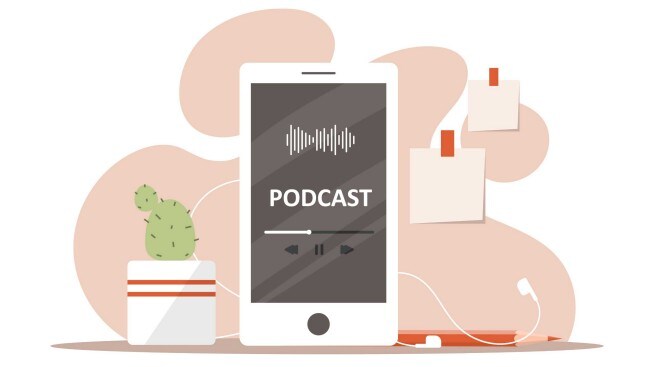How long does it take to build credit history?

Having a good history of paying your bills on time and keeping your overall debt low, are some of the biggest drivers toward a good credit score. And having a good credit score gives you access to a wide range of financial options, not to mention better interest rates.
The efforts you make to improve your credit score can start to show up in just a few months. But building an exceptional credit score is a longer journey. Here's what you need to know about building credit, both for the short-term and the long-term.
- What you need to know about building a credit history
- How to start building your credit history for a better credit score
- How to keep building your credit for a great credit score
- Take strategic steps and build your credit today
What you need to know about building a credit history
You may not have much of a credit history today, but the sooner you start to build credit, the faster you'll set yourself on a path to a more secure financial future.
To get your credit on the right track, it's important to understand:
- What credit scores are used for
- What actually makes up a credit score
How are credit scores used?
You have every intention of paying the debt back on time when you apply for credit. But the lender doesn't know anything about you, other than the information you self-report, like your income or address.
Credit scores were created to give lenders an objective way to assess how responsible a borrower is likely to be.
The higher your score, the lower the perceived likelihood of you missing a payment (or defaulting on your debt). Building your credit is really a process of showing lenders that you can be responsible with debt.
What's included in a credit score
There are two primary scoring systems in use today: VantageScore® and FICO®. They are a little different, but use similar factors to make up your credit score on a scale of 300 to 850.
VantageScore uses three main risk segments:
- Prime, the top credit tier: 661-850
- Nonprime, the middle tier: 601-660
- Subprime, the lowest tier: 600 or below
FICO, meanwhile, is broken down into tiers:
- Exceptional: 800 or above
- Very good: 740-799
- Good: 670-739
- Fair: 580-669
- Poor: 579 or below
VantageScore takes into consideration:
- Payment history (said by VantageScore to be “moderately influential")
- Your credit mix and average account age (highly influential)
- The percentage of your available credit that you are using (highly influential)
- How much debt you currently have (moderately influential)
- How many new credit accounts or inquiries you have (less influential)
- How much credit you have available (least influential)
In descending order of importance, a FICO score considers:
- Your payment history on your existing credit (35% of the total score)
- How much debt you currently have (30%)
- The length of your credit history (15%)
- How many new credit accounts or inquiries you have (10%)
- Your credit mix (10%)
Payment history is important in both scoring methodologies. So you can see why paying back debt in a timely manner is so important when you want to build credit.
How do you start to build a good credit history?
There are a number of ways you can start building a good payment history:
Take out a credit-builder loan
Credit-builder loans are just what they sound like—loans for people who want to improve their credit score by building a consistent payment history. These loans are actually savings accounts to which you make regular deposits. The lender will place your deposit in a savings account and you'll be able to make consistent payments toward the loan. Over time, you can build up a positive payment history that can improve your credit score. At the end of the term (usually a year) you receive back the full amount you have contributed. You can expect most lenders of credit-builder loans to charge a modest fee for this service. Some lenders may even refund you on any interest paid on the credit-builder loan over time.
Consider becoming an authorized user
Leverage a family member with a good credit score who might be willing to add you to their account as an authorized user. Becoming an authorized user allows you to tap into that person's positive credit history and could improve your credit score.
Open a secured credit card
Secured credit cards, like credit-builder loans, are designed for people who want to boost their credit score. With these cards, you make a small deposit that is used as collateral. The lender extends you credit with a limit that is no bigger than your deposit, so you can make small purchases and post regular payments against them. It's like having a pre-paid credit card.
Take out a personal loan
Personal loans typically aren't secured by collateral and can have high interest rate charges. Still, if you borrow an amount you know you can pay off easily in steady monthly increments, then they can help you enhance your credit mix, as well as build a consistent payment history.
How to keep building your credit for a great credit score
Opening or getting added to credit accounts is just the first step in your credit journey.
Building a great credit score can take much longer—as long as seven to 10 years in some cases.
The reason a strong credit score often takes so long is because one of the factors taken into account is just how long you've consistently paid your bills on time. Any missed payments along the way could stay on your credit report for seven years, while bankruptcies can be present for 10.
You can keep your credit history headed in the right direction (up!) by following these credit score boosting principles:
Short-term credit-building strategies
These actions can help to positively impact your credit in a comparatively short period of time, like six to 12 months.
Check your credit report for errors
You are entitled to one free credit report per year from each of the three reporting agencies: Experian™, Equifax® and TransUnion®. You could improve your credit score by reporting any errors to the appropriate credit reporting agency. The Federal Trade Commission has found that 5 percent of consumers have an error on their credit report, so it's definitely worth your while to comb through your reports for errors.
Always pay your bills on time
Payment history is an important piece of your credit score, so pay your bills on time.
Your best option is to pay off your credit card balance each month, but at the very least, consider using your credit card's auto pay feature to make sure you pay at least the minimum due on time each month. Then make extra payments every month—in addition to that automatic minimum payment—so you reduce the amount of interest charges that are being added to your overall balance.
Medium-term credit-building strategies
These actions can help you keep building your credit over the next few years. As long as you make regular payments and keep your total debt at a reasonable level (think of keeping your balance at less than 30 percent of your total credit limit), your credit score should continue to improve.
Pay off your entire balance each month
While any debt payment is better than none, it's best to pay your full balance every month. Paying your bills promptly keeps your total debt load manageable. And if there's no balance on your card, you may not have any interest charges.
Use your debt wisely
An important metric used by financial companies is your credit utilization ratio, which is basically the amount of debt you owe, divided by the total amount of credit that's available to you. The lower the amount of debt versus your credit limits, the better. It is recommended that you keep your total debt at less than 30% of total credit available.
You can keep it down by paying down your credit card balances as much as you can or in full every month, as well as by seeing if your credit card issuer will increase your credit limit. Increasing the credit limit on a card is something lenders may consider, if they see you've been meeting your payments on time and are maintaining a low credit utilization ratio.
Long-term credit-building strategies
These actions can help you keep building your credit over a lifetime.
Be thoughtful about opening new accounts
While new lines of credit may help you build a credit history and lower your credit utilization ratio, you should only take on debt—or spend against your available credit— to the extent that you can afford to pay. Take a hard look at your budget to identify what levels of debt you are comfortable with before you request any new lines of credit or loans.
Keep existing accounts open
As you sign up for credit accounts, try to keep them open instead of closing them—even if your spending habits change with time. The older your accounts, the higher your average account age will be: a factor that may drive your credit score higher.
Building your credit takes focus and effort. But the benefits of a strong credit score make it a challenge worth tackling. Start building good credit by taking on debt responsibly and paying it off promptly. Your future self will thank you.



